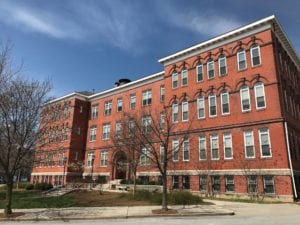Who is a member?
Our members are the local governments of Massachusetts and their elected and appointed leadership.

The administration and Department of Elementary and Secondary Education announced the intention to push for schools, particularly at the elementary level, to offer in-person learning five days a week by the end of April.
On Feb. 23, Elementary and Secondary Education Commissioner Jeffrey Riley and Gov. Charlie Baker announced their intention to push for schools, particularly at the elementary level, to offer in-person learning five days a week by the end of April.
In a letter to school and district leaders urging a “shift away from remote and hybrid learning models and [a] return to a traditional in-person educational format,” Riley cited updated guidance from the U.S. Centers for Disease Control and Prevention and other health experts, recommendations from the Biden administration, and the success of current in-person learning programs in Massachusetts.
“At this point, with the robust mitigation strategies we have in place and all the data and evidence we have in hand, it is time to begin the process of returning even more of our students to classrooms,” he said.
Gov. Baker echoed these sentiments during a press event that day.
Riley said he informed the Board of Elementary and Secondary Education that in March he will request that the board grant him the authority to determine when hybrid and remote models no longer count for learning hours.
“If granted this authority, I will pursue a phased approach to returning students to the classroom, working closely with state health officials and medical experts. Ideally, my initial goal is to bring all elementary school students back to in-person learning five days a week this April.”
Riley said “schools throughout Massachusetts have been providing in-person instruction to students using DESE’s guidance for over six months and have experienced first-hand the efficacy of these measures in significantly limiting in-school transmission.”
He said parents will still have the option for their children to learn remotely through the end of the school year, and there will be a waiver process for districts that “may need to take a more incremental approach,” for instance, to first move to a robust hybrid model if they are currently fully remote.
While the CDC continues to recommend 6 feet of distancing in its guidance, Riley said the DESE will continue to recommend 6 feet of distance where feasible and a minimum of 3 feet when all other mitigation measures are in place. He said this approach is supported by the World Health Organization, local public health experts, infectious disease physicians, the Massachusetts Chapter of the American Academy of Pediatrics, and the Governor’s COVID-19 Medical Advisory Board.
Riley recommended a range of initial actions by districts, including consulting with DESE’s COVID-19 operations team before making any changes to in-person learning.
“If they aren’t already doing so,” he wrote, “districts and schools in fully remote models should plan for an in-person return for elementary students in either a robust hybrid or fully in-person model, regardless of community prevalence.”
Districts and schools are being encouraged to survey families about their interest in both hybrid and fully in-person models. The preference of some families to remain in fully remote learning through the end of the school year, he said, may enable some districts and schools “to accommodate the remaining students interested in attending school fully in-person this spring, while maintaining physical distance between students.”
Riley also encouraged districts and schools to sign up for DESE’s pooled testing initiative by emailing k12covid19testing@mass.gov.